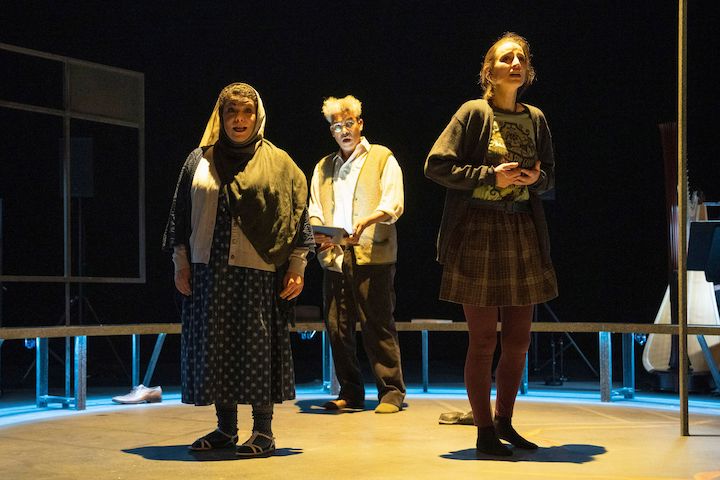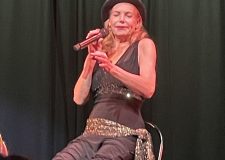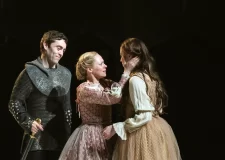GLASS HUMAN
 Attending a premiere always carries with it equal amounts of excitement and trepidation, stepping into the unknown expectations can be high but the chance of disappointment equally sits there.
Attending a premiere always carries with it equal amounts of excitement and trepidation, stepping into the unknown expectations can be high but the chance of disappointment equally sits there.
I’ve seen quite a few premieres over the years and some of them at Glyndebourne and those have always impressed, in part because of the level of commitment invested in them, and this was no exception.
That said, this time I was only partly engaged by the piece as a whole. There were of course memorable elements to this new work. I was spellbound by the small orchestra and their playing, some beautiful moments, delightful interplay between cello and viola, eerie percussion and for once a harp part that was worth listening too. I would have liked to hear more use of the accordion but that’s just my liking for accordion.
The piece is all about loneliness and isolation and the collaborative team behind it have workshopped with people who felt those things either during the pandemic or before.
Many of us did of course, for those of us who live alone that sense of isolation and loneliness is now all too real, and no doubt the feelings were similar for people locked down in small family units too.
The three character we see here are alone, a man with dementia, a young woman with mental health issues and a refugee separated from family. For all three life is bleak, and that bleakness permeates the whole piece. It’s dark and relentlessly gloomy with only the faintest glimmer of light and hope in the very last moments, and I suppose that is a fair enough statement to be making, that not everyone will find a happy ending. But it does make for a sombre experience for the audience.
The staging and the setting and costumes do little to alleviate that either. Supposedly isolated in a high rise block of flats, the circular structure seemed misplaced and the way the three performers used that space seemed totally at odds with the idea of enforced solitude. The costumes were of course contemporary, no surprises there, but I do tire of seeing all representations of female refugees in headscarves.
Despite my quibbles there was much to enjoy, especially the performance from Anna Cavaliero who sang the role of Grace, Camille Maalawy who sang the role of Oma and Denver Martin Smith who stepped in at very short notice to sing the part of Edward which he did brilliantly.
There were moments that worked so so well and then… well moments that simply hovered above a dark and rather Hammer Horror soundscape of glowering storm or post apocalyptic sounds that gave an end of the world impression. And maybe that was what composers Samantha Fernando and Melanie Wilson had intended, that for Grace, Oma and Edward life was over. And when the end for the audience was nigh we were given an audio collage of voices gleaned from workshops held around the country during the creative process.
The high point was of course being present at the opening of a new work, a real privilege, and coming away having been provoked and at moments delighted, it’s not often that you hear the words ‘tomatoes and salad cream’ sung in a major opera house. And praise must also be awarded to Glyndebourne for their commitment to new work.
Andrew Kay
28 November
Glyndebourne
Rating: 






















